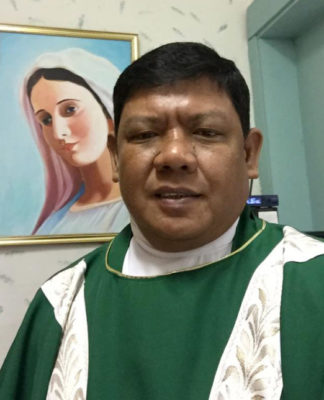FERDINAND Marcos’ iron-fist rule did not come unopposed by Filipinos, who condemned the variety of human rights violations perpetrated under his watch.
Even Thomasians, raised in a traditionally conservative environment, took to the streets and risk life and limb as part of a national effort to gain the Filipino’s freedom back.
Going by UST’s participation in protest actions in recent years, apathy appeared to have gradually crept back among its students since those exciting years of the anti-Marcos movement. No longer, it seems, do they appear to be as involved and committed in issues confronting Philippine society in general.
But is it really a case of political apathy? Or do Thomasians simply prefer to choose their battles?
Dwindling liberalism
According to Department of History chairman Augusto de Viana, the Thomasian community during the Martial Law era was strictly monitored against rebellious activities committed by student activists.
“Back then, military agents surrounded the campus, looking for troublemakers who dared to challenge the government,” he said.
Students were obliged to fill out forms pledging that they would not engage in any anti-government activity.
“No one was allowed to take action because expulsion was deemed the consequence,” he added.
If at all there were Thomasians willing to stand up against the administration, their actions were clandestine, he said.
“Even if students wanted to fight for something, they were not allowed to. If there was anything that they did, it was underground.”
Laywer Reynaldo “Bong” Lopez, one of the UST student leaders during that era, said that even if Thomasians were generally silent and passive during the martial rule, there were those who took the risk.
“Some of the things that can affect a person’s desire to participate in these social issues are the fear of suppression and conservatism of the environment,” said Lopez, who now teaches at the Faculty of Arts and Letters.
Lopez said students were probably distracted as well by digital innovations over the years.
“Half of the world’s population is attached to social networking and computer games so politics may have ceased to exist at the moment,” he said.
Youth’s response
Lorraine Taguiam, Central Student Council president, said the silence of students was not necessarily a reflection of their apathy.
“Thomasians are not really apathetic. It is just that not everyone sees what everyone else does,” she said, noting the various activities where students get involved in social and political issues.
“We cannot really expect all the students to participate in all the activities. All of us have our own lives to live, and not being seen by the public as an active student does not mean passiveness. Margaret Rose B. Maranan














